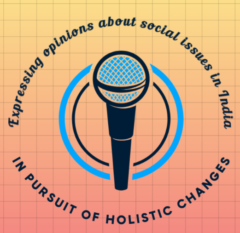
World AIDS Day, observed on December 1st, is a significant occasion in India. The theme for World AIDS Day 2024, “Take the rights path: My health, my right!” emphasizes the importance of human rights in healthcare access for people living with HIV. This theme serves as a reminder that everyone deserves equitable access to health services without stigma or discrimination.
India has made substantial progress in combating HIV/AIDS over the years. However, challenges remain. With over 2.5 million people living with HIV in the country, awareness and education are crucial. This blog explores various aspects of HIV/AIDS in India, including treatment advancements, community engagement, and the ongoing fight against stigma.
Understanding Human Rights in HIV/AIDS
Human rights are essential to addressing the HIV epidemic. The HIV and AIDS (Prevention and Control) Act 2017 ensures that people living with HIV are protected from discrimination. This legislation mandates that all states appoint ombudsmen to address grievances related to HIV prevention policies. As health minister Smt. Anupriya Singh Patel stated, “Efforts to address stigma around HIV have been bolstered through this act.”
Stigma can prevent individuals from seeking treatment. Many fear judgment and isolation, which leads to late diagnosis and increased transmission rates. By promoting human rights, we can create a more supportive environment for those affected by HIV.
Innovations in Treatment and Prevention
India is at the forefront of innovative treatments for HIV. Antiretroviral therapy (ART) has transformed HIV from a fatal disease into a manageable condition. Currently, over 1.7 million people receive free ART through public healthcare systems. This therapy not only improves individual health but also reduces transmission rates.
Moreover, new treatment options like immunotherapy and gene therapy show promise. Immunotherapy enhances the body’s immune response against HIV, while gene therapy aims to modify a patient’s genes to combat the virus effectively. Ayurvedatreatment can also be sought to alleviate the symptoms of AIDS and stimulate immunity. These advancements could revolutionize how we approach HIV care.
As Dr. Soumya Swaminathan, former Chief Scientist at WHO, noted, “Innovative treatments are crucial for managing chronic diseases like HIV.” Such innovations can lead to better health outcomes and ultimately contribute to ending the epidemic.
The Role of Community Engagement
Community engagement is vital in fighting HIV/AIDS. Initiatives like Red Ribbon Clubs in educational institutions promote awareness among youth about safe practices and stigma reduction. These clubs empower young people to take charge of their health and advocate for their rights.
Additionally, community-led programs have proven effective in reaching marginalized populations for testing and detection and addressing mental health issues of HIV patients. For instance, organizations targeting sex workers and men who have sex with men have made significant strides in reducing infection rates in these high-risk groups.
As Veena, a community educator living with HIV, shared, “My life has changed because of treatment and support.” Her story highlights the importance of community support in improving individual lives.
Challenges and Progress in India’s Fight Against HIV/AIDS
Despite progress, challenges persist. New annual infections have decreased by 44% since 2010, yet many still access treatment late. The 90-90-90 strategy, which aims for 90% of people living with HIV to be diagnosed, treated, and virally suppressed by 2020, is crucial for further progress.
Statistics show that annual AIDS-related deaths declined by 54% between 2007 and 2015 due to effective ART rollout. However, sustaining this momentum requires continuous effort from both government and civil society.
The National AIDS Control Program (NACP) plays a significant role in this fight by targeting high-risk groups effectively. As stated by UNAIDS Director Steve Kraus, “The Government of India is showing bold leadership.” This commitment is essential for achieving the goal of ending AIDS as a public health threat by 2030.
Commemorating Lives Lost on World AIDS Day
World AIDS Day 2024 also serves as a day of remembrance for those who have lost their lives to AIDS-related illnesses. Each story represents a life cut short due to stigma or lack of access to care. Reflecting on these lives can motivate continued action against the epidemic.
Veena’s journey illustrates this point well: “I never thought I would see my daughter grow up.” Her story reminds us that treatment not only saves lives but also allows families to thrive.
Conclusion: A Call for Holistic Change
As we observe World AIDS Day 2024, it is crucial to reflect on our collective responsibility towards those affected by HIV/AIDS in India. We must continue advocating for human rights while promoting innovative treatments and community engagement.
To achieve holistic change:
- Increase awareness about available treatments.
- Support community-led initiatives.
- Address stigma through education.
- Ensure equitable access to healthcare services for all.
Together, we can create an inclusive society where everyone has access to necessary health services without fear or discrimination. Let us commit ourselves to this cause not just today but every day.
Call to Action
Join us in spreading awareness about HIV/AIDS on World AIDS Day 2024! Share your thoughts in the Comments section of this blog using #WorldAIDSDay2024 and encourage others to learn more about this critical issue. Together, we can make a difference!

Good article
Thank you, Manish
Good research.
Thank you, Kriti ji!